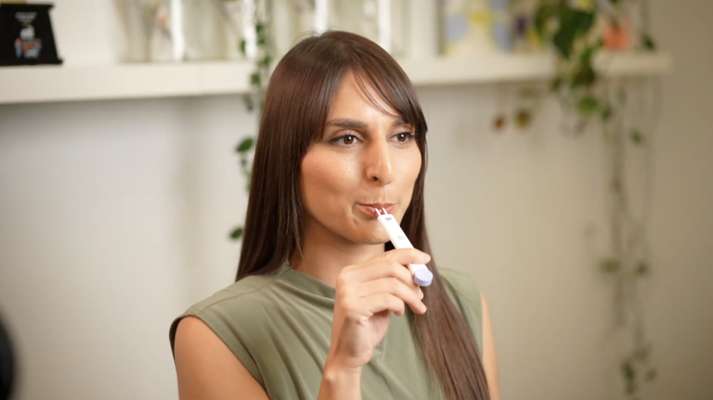8 Sustainability Myths & the Power of De-Influencing
These days, the word ‘sustainability’ is thrown around a lot, and it doesn’t always mean what consumers think.
Keep reading to find out about common sustainability myths, and how de-influencing can help promote sustainability.
Plus, find out what is the most sustainable in affordable menstrual products so you can do your part to protect the environment.
Why People Have Misconceptions about “Sustainable” Products
Sustainability has come to be collectively viewed as generally good and is something to strive for, yet not everyone knows what exactly it means.
Companies have tried to appeal to customers who are increasingly demanding more eco-friendly products by using terms like “green” and “sustainable” in their marketing, even when it isn’t always true.
Here are some sustainability myths to look out for.
8 Sustainability Myths You Should Know About
1 – You Should Always Choose “Sustainable” Products to Protect the Environment
If you’ve ever assumed you’re doing your part to protect the environment by choosing a product that’s labelled as ‘sustainable’, ‘green’, or ‘eco-friendly’, then you’re not alone.
The truth is that packaging can be deceptive, and many companies try to capitalize on the growing public concern for the environment by marketing themselves as environmentally friendly when they are not meaningfully contributing to sustainable practices.
The bottom line is that you should always do your research to make sure the companies you support put their money where their marketing is when it comes to protecting the environment.
2 – Plastic is Always Unsustainable and Plant-Based Materials are Always Sustainable
Plastic gets a bad rap, but it isn’t inherently unsustainable – it’s the way we use it that is!
When deciding what is sustainable and what isn’t, you need to consider the source of the material and the end of life of the material.
Single-use plastics are certainly unsustainable because they are being used once and then going to a landfill.
But if plastic is used in the right way, it can actually be sustainable because its long life means that it has potential to be used in infrastructure and other things that we want around for a long time.
On the other hand, organic or plant-based materials are not always sustainable just because they’re natural.
Cotton, for instance, uses a ton of resources to grow compared to plants like hemp and also may involve troubling unethical practices associated with it.
There is usually no end-of-life plan for cotton materials, which contributes to their lack of sustainability.
3 – Green Products are Always Better for Consumers’ Health or Safety
The tendency for some companies to exaggerate their eco-friendliness mentioned in the first sustainability myth above is called greenwashing, and this has implications for your health and safety in addition to the environment.
You should not automatically assume that something labelled as ‘green’ or ‘sustainable’ is better for your health or safety.
Pay attention to ingredients and do your research on the company practices before you decide.
4 – Purchasing Sustainable Goods Always Costs Extra
There is a common misconception that living a sustainable lifestyle is prohibitively expensive.
While it’s true that some sustainable alternatives and organic fruits and vegetables tend to be more expensive, sustainable goods don’t always cost more.
Some truly green products do cost more than the prices we are used to, particularly when it comes to fashion.
However, as demand for eco-friendly and ethically produced products grows, prices will come down.
Sustainability is also about buying quality rather than quantity and reducing your consumption overall.
5 – Recycling is the Best Way to Address our Trash Issue
Recycling is an important part of keeping waste out of landfills and reducing the use of natural raw materials.
However, only 9% of all plastic ends up being recycled, and not all types can be repurposed.
The types of plastic that can be recycled a limited number of times. Furthermore, materials that are not clean are often considered contaminated and dumped in landfills instead of being recycled.
Instead of counting on recycling to take care of our massive trash problem, we need to create less trash in the first place by moving towards sustainable packaging that biodegrades.
You can do your part by purchasing refillable personal care items instead of plastic containers of shampoo, soap, and makeup that get thrown out each time.
6 – Consumers Alone Bear Responsibility for Sustainability
When you care about the impact your lifestyle has on the environment, it’s easy to feel guilty about every choice you make.
But it’s important to remember that we as consumers are not solely responsible for ensuring sustainability.
Consumers, governments, and companies have a shared responsibility to act in the best interest of this planet we all call home.
As consumers, we speak with our dollars, and it’s important to remember how much influence we can collectively have on the practices of corporations by demanding more ethical and sustainable products.
At the same time, we should call on our government to create policies and regulations that ensure companies and individuals alike are incentivized to do their part to promote sustainability.
7 – Small Scale, Individual Acts Have Little Impact on the Environment
A sustainability myth that most of us have witnessed is the belief that individual actions make no difference in the grand scheme of things.
That, how quickly the environment degrades will not be changed by whether you decide to recycle, forgo a plastic straw, or buy organic.
We all have a friend who says things like, “what difference does it make if I use this [insert single-use plastic item]? It has already been produced.”
While individual choices may seem like a drop in the ocean, every little bit adds up.
Imagine how much less landfill waste there would be if every menstruator decided to use fully compostable and biodegradable menstrual pads, for example.
8 – Social Justice and Equity are Not part of Sustainability
Sustainability only concerns the environment, right? Wrong! One big sustainability myth is that sustainability is only a matter of environmental justice. In fact, sustainability issues are inextricably linked with social justice and equity.
Marginalized populations are the most vulnerable to climate change, as they are more likely to be affected by extreme weather, food insecurity, loss of biodiversity, and other impacts of unsustainable practices.
Even in wealthier nations, negative environmental impacts hurt the most vulnerable. Hazardous waste facilities are often located in poor areas, exposing residents to toxic health effects.
The Power of De-Influencing for “Sustainable” Products
Now that you know the most common sustainability myths, find out how you can be a part of de-influencing to combat them.
De-Influencing Overview
You may be wondering, ‘what is de-influencing?’. De-influencing is a recent trend on social media that involves people encouraging their followers not to buy a product, sometimes to limit waste.
This includes discussing why certain products aren’t as great as they seem and suggesting alternatives.
How De-Influencing “Sustainable” Products Plays a Role
De-influencing doesn’t have to be limited to warning followers about overhyped products. It can also be used as an avenue for calling out companies that greenwash and claim to be sustainable when they aren’t.
This can play an important role in educating customers about the importance of being more conscious about where they spend their money and curbing overconsumption by supporting truly sustainable products.
Aruna Revolution ; Compostable Menstrual Pads
You may have heard about sustainability issues with menstrual products before. At Aruna, we believe in treating the earth as well as we treat our bodies. Our menstrual pads are free of plastic and 100% compostable.
Here’s why our pads provide a preferable alternative to other menstrual pads.
Why are Menstrual Pads Unsustainable?
More than 20 billion pads and tampons are dumped in landfills every year in North America alone.
Most commercially available menstrual pads and tampons and the packaging they come in contain plastics, meaning they will take up space in landfills for hundreds of years.
These issues with menstrual products are deeply troubling, but luckily Aruna offers a better way!
What is the Most Sustainable in Affordable Menstrual Products?
Aruna offers one of the most sustainable and affordable menstrual products around.
Our sustainable menstrual pads are crafted from crop and food waste to contribute to a circular economy. With no chlorine, beach, fragrance, cotton, or plastic, these pads are healthier for your body and the planet.
Final Thoughts on Sustainability Myths and the Power of De-Influencing
Now that you’re aware of common sustainability myths and how de-influencing can play a role in raising more awareness about how to be more environmentally responsible, you’re equipped to tell your friends and family to spread the word!
Full content in Aruna Revolution




